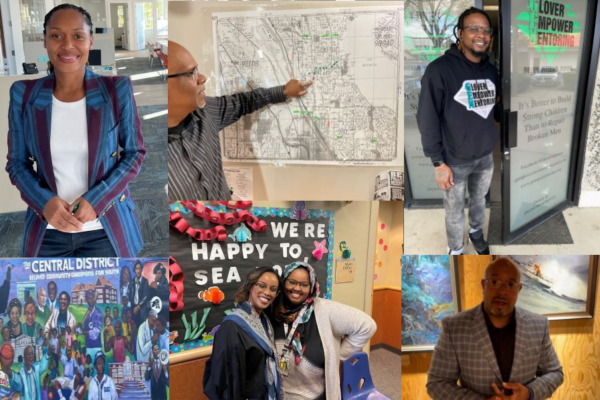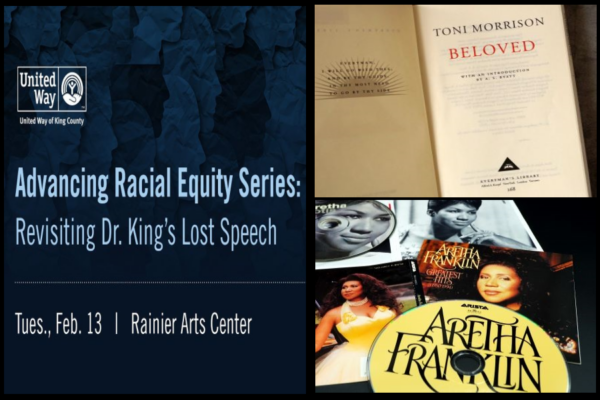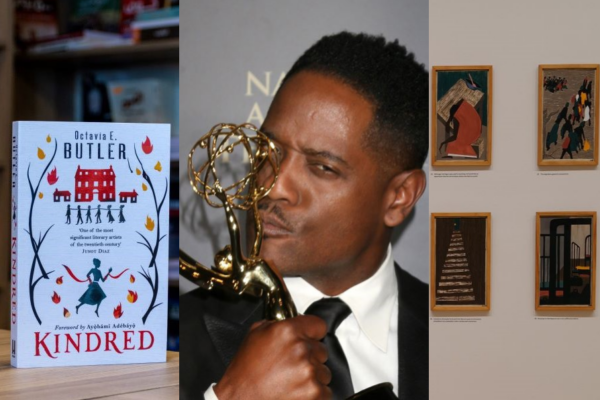African American United Way CEOs Talk Issues, Strategies, Unity
How does United Way strive to be both inclusive and welcoming, yet courageous and unapologetic—particularly as we tackle issues rooted in America’s history of systemic racism and oppression? That question was posed to 16 African American CEOs of United Ways across the country during our recent gathering at United Way Worldwide headquarters in Alexandria, VA.
In my President’s blog last month, I mentioned that United Way Worldwide President and CEO Angela Williams—the first Black woman to lead the organization—and other African American CEOs of United Ways nationwide would gather for discussions on how United Ways can be more visible across the country in terms of race and social justice.
As it turned out, our meeting was not the first such gathering, only the first in at least four years. United Way’s Black CEOs once gathered regularly, and ultimately formed their own affinity group—the Black Professionals Leadership Alliance. Of the more than 1,100 local United Way organizations nationwide, the Black Professional Leadership Alliance has identified 42 that are led by African Americans. About a third of those 42 were present at our Virginia meeting, and part of our discussions concerned whether United Way should have a goal that at least 13% of local United Ways are led by Black CEO’s, reflective of the percentage of African Americans in the US.
The conversations were robust, informative and thoughtful. We shared about what’s going on in our local communities, concern around what can or should we do more of as a collective around racial justice. We spoke about issues like gun violence, affordable child care and the need for more change to the policies and systems that impact whether people are productive, active and have a sense of belonging in society. A lot of the conversations centered around how smaller and more focused nonprofits are struggling. We also talked about the significant intersectionality that exists in communities of color—living with stresses related to poverty and disparities and then the COVID-19 pandemic comes along.
And we pledged our support to Williams as a Black leader of United Way Worldwide. We wanted her to know that she can count on us to be honest and say, “You’re doing well here,” “You’re slipping over here,” and “We’ve got your back.”
Among those in attendance was Dona Ponepinto, the President and CEO of United Way of Pierce County. We both mentioned to those in our group that Craig Chambers, the new President and CEO of United Way of Snohomish County, is also African American.
This means that the United Ways in the three most populous counties in Washington state—King, Pierce and Snohomish counties, respectively—are led by African Americans. I am hosting Dona and Craig next week and we will discuss our work locally and whether we can aspire to do some Puget Sound regional work.
As many of us are still getting to know one another, we made no concrete decisions during the gathering. Yet two key themes emerged:
The first stemmed from a point I raised questioning whether we at United Way have been too cautious about public policy work. You’ve got local United Ways in so-called “red” communities and those in so-called “blue” communities. And because of the dynamics that exist in those communities, former United Way Worldwide leaders tried to walk a nuanced line to get things done without upsetting stakeholders.
When you are dealing with issues of structural and systemic racism and centuries-old oppression, being nuanced can be perceived as being timid.
Gordon McHenry, Jr., United Way President and CEO
I appreciate that approach, but when you are dealing with issues of structural and systemic racism and centuries-old oppression, being nuanced can be perceived as being timid. We are at a time when United Way has an opportunity to take a fresh look at how it is perceived and whether those perceptions shape whether the public believes we are primed to lead the way in facing the challenges that ail our society.
Then we must show we are uncompromising in calling out injustice whenever or wherever we see it. We must embrace innovative and bold approaches to problems—at both the local and national levels. We must demonstrate, in all we do, that we are working toward realizing racially just communities—even if our efforts are unpopular with some in the mainstream.
The second theme became an action item: We are committed to identifying innovative and bold work that is driving progress in our own communities and then reconvening to discuss how that work can be amplified and implemented across all United Ways. This action item came as a result of many conversations, including one with Angela Williams’ husband; he visited one of our discussions and gave a really powerful testimony of how he loves and supports her and the works she does. He added, “When the work is about community, how can we go wrong?”
That reminded me somewhat of times this year when people have told me this work is about the money. No, it is not. It’s about love—love for community! Our outgoing campaign chair, Doug Baldwin Jr., spoke frequently and eloquently about it, and our incoming campaign co-chairs, Scott and Patty Meden, have embraced the criticality of leading with love and seeing people for who they are.
It reminds us of the humanity of why we do this work. The Black United Way CEOs who convened didn’t embrace a Black agenda but talked about things we want to do to be responsive to the growing recognition that focusing and prioritizing the issues most relevant to Black, Indigenous and other communities of color will benefit all and accelerate fundamental socio-economic progress throughout the United States. The beginnings of a blueprint for the CEO of United Way Worldwide to increase the impact of United Way.
Our plan is to meet again virtually before the end of the year. Please check here frequently for updates.





Comments